The EEF Board is Having its 2021 Election
The Erlang Ecosystem Foundation is set up as a community organisation, to be run for and by the community. As such, the role of board member is assigned by a democratic process, where voting members get to run and vote for their preferred candidates.
The process to be followed is described in legalese in our bylaws, but this page will explain more clearly how we plan for this to be working forwards.
Important Dates
The following dates are important to the campaign:
- February 26: Elections announced, people can submit their candidacy
- March 11: Last day to submit your candidacy. Email acceptance ends at midnight PT on the 12th
- March 12: Votes are open
- March 19: Votes are closed
Election results will be announced as soon as possible after closing.
Do not forget to make sure you are a voting member to take part into the elections.
What Does a Board Member do?
Board members’ main involvement is essentially to sit in meetings (usually over video chat), and vote on the direction the foundation will take. They are responsible for things such as:
- Choosing how to allocate the budget of the Foundation (within the regulations specified by the bylaws and the IRS)
- Choosing which working groups are going to be accepted
- Choosing which working groups may be contracted if they are not meeting their objectives
- Handling administrative details (such as running these elections)
- Helping coordinate efforts across working groups
- Have the ability to change and adjust bylaws
- Bear the responsibility and be accountable for the Foundation’s ongoing success
It is ultimately a fairly political job focused on “running the foundation”, distinct from the more direct involvement people in specific working groups usually have. Board members are not precluded from being part of working groups either.
Additionally, the roles of Director and Secretary can only be assigned to people on the board; they are the people who have all the actual administrative duties related to legal paperwork (writing actual signatures!), finance, insurance, maintaining meeting minutes, and ensuring that bylaws are respected by the rest of the board.
None of these roles are compensated; this is a volunteer effort because you care to steer the foundation in a direction you believe is important. You may also put the role of board member on your LinkedIn page or resume if that suits you.
Who are the Outgoing Board Members?
While the founding members assigned themselves to be part of the board as part of the initial bootstrapping effort, the board has been randomly divided into three cohorts, A (containing 3 members), B (4 members), and C (4 members). To ensure continuity, only one cohort is re-elected each year. This means that you will be elected for 3 years at a time.
Here are the cohorts as defined until the next election:
A, to be re-elected in 2022, 2025, and every three years after:- José Valim
- Richard Carlsson
- Kenneth Lundin
B, to be re-elected in 2021, 2024, and every three years after:- Peer Stritzinger
- Maxim Fedorov
- Benoit Chesneau
- Miriam Pena
C, to be re-elected in 2023, 2026, and every three years after:- Sebastian Strollo (current Secretary)
- Fred Hebert
- Alistair Woodman (current President)
- Francesco Cesarini
For this first election, the members of cohort B are to be re-elected, so the seats of Peer, Maxim, Benoit, and Miriam are up for grabs.
Furthermore, José Valim is going to be stepping down from his seat on Cohort A in order to have more time to focus on working groups, namely the newly founded ML working group he will chair, and will remain active within the foundation. Whoever runs for the board and gets the fifth most votes in the election will be able to serve the remainder of José’s term, and be re-elected in 2022.
We therefore need 5 people to fill in the seats this year!
How to Run?
If you want to run, you must be a voting member. Voting members are members who have done one or more of the following:
- A paying member paying their yearly membership or having paid for a lifetime membership
- A contributing member, who has spent about 5 hours monthly working in a working group, and who has contacted us at voting@erlef.org to claim their voting rights
- A managing member, who leads a working group and who has contacted us at voting@erlef.org to claim their voting rights
- A board member, who has a de-facto membership.
If you want to run, you should contact us at voting@erlef.org with the following information:
- Your name
- A short biography describing who you are
- A short text explaining why you think people should vote for you
- A photo (optional)
If eligible, you will then be added to the list of candidates on this page and on the ballots.
You have until end of day March 11 2021 Pacific time (PST) to submit your candidacy.
How to Vote?
You first have to have the right to vote, as a voting members. Voting members are members who have done the following:
- registered as a paying member paying their yearly membership or having paid for a lifetime membership
- acted as a contributing member, who has spent about 5 hours monthly working in a working group, and who has contacted us at voting@erlef.org to claim their voting rights
- A managing member, who leads a working group and who has contacted us at voting@erlef.org to claim their voting rights
The election will be open on March 12 2021, from midnight PST and for the next 7 days, until March 19 2021. On that day, a link will be sent to you to the address defined in your member profile. The link will forward you to a form, which will contain a list of all the candidates. Since four chairs are up for re-election, you will get to pick 4 candidates. Once you will have voted, you will not be able to change your votes. The candidates with the most votes will be part of the board for the next 3 years.
Who are the Current Candidates?
This list will be expanded as new candidacies are received
- Erik Stenman
- Maxim Fedorov
- Bryan Paxton
- Mahesh Paolini-Subramanya
- Amos King
- Sophie DeBenedetto
- Miriam Pena
- Peer Stritzinger
- Benoît Chesneau
Erik (Happi) Stenman
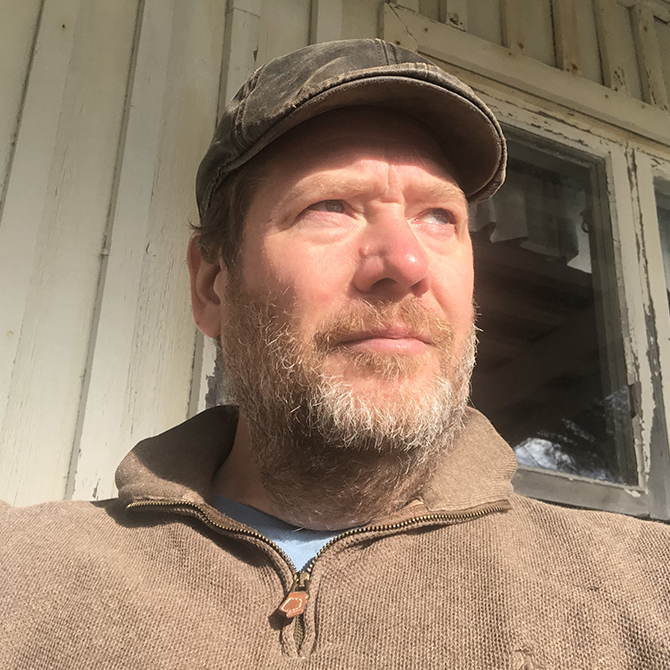
first time candidate
Erik, or Happi as most people call him, has been programming Erlang since 1994; as a master’s student, as a doctoral student in the HiPE research group at Uppsala University, as a CSO and CTO at Klarna and now as CEO of Happi Hacking. Erik started programming in 1980 and started his first company in 1989.
Erik wrote the world’s first native code compiler for Erlang, called Jerico, and also initiated and wrote the first version of the second native code compiler for Erlang, HiPE.
In addition to this, Erik has also written “The BEAM book” and articles about Erlang, presented his research at several academic conferences and workshops, and was awarded the “Erlang User of the Year” during his time in the HiPE research group.
He was also project leader for the group that developed the first version of Scala, as well as university lecturer, especially in compiler technology.
Erik was together with Joe Armstrong one of the driving forces behind the Erlang Enhancement Process (EEP). He also was a long time member of the board of the Erlang Industrial User group, the precursor to the Erlang Ecosystem Foundation.
Why vote for him?
I think you should vote for me as a member of the board since I still have a passion for Erlang and the Beam, even after over 25 years. I still want to learn more about Erlang and I want more people to know about the Erlang Ecosystem. If you want someone with pretty deep technical knowledge of the BEAM and not so much interest in politics you should vote for me.
Maxim Fedorov
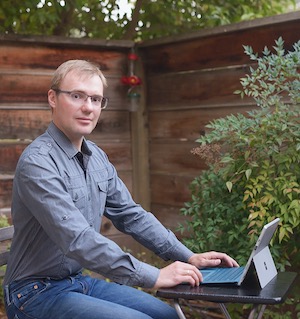
outgoing board member
Maxim has over 18 years of experience in networking, security and scalability. He discovered the BEAM ecosystem when he joined WhatsApp, and soon became a passionate community supporter. Maxim is an engineer to the core. Author and maintainer of several open source libraries: argparse, erlperf, power_shell. Active contributor to OTP, featuring highlights to R23 with pg, and concurrent TLS distribution handshake in R24. Member of Build and Packaging working Group, improving Rebar3 support for large codebases.
Maxim believes in an open community with members pursuing a goal of growing the successful ecosystem.
Why vote for him?
Two years ago we were just a group of enthusiastic people, willing to bring fragmented communities together. We had a dream of building a strong foundation. I volunteered to be one of the founding members of the Marketing working group, and created the original erlef.org website in just a week before the official announcement.
Ecosystem growth is still my focus. Supporting foundation members with necessary infrastructure is one of the key components. I promise to do my best to provide this support, now as a member of the Infrastructure working group.
I believe that our mission is to bring companies and individuals to work together towards a single goal—ecosystem success. That’s why I am a BEAM ambassador at WhatsApp, willing to drive company engagement in the ecosystem, and work to improve the community.
Bryan Paxton
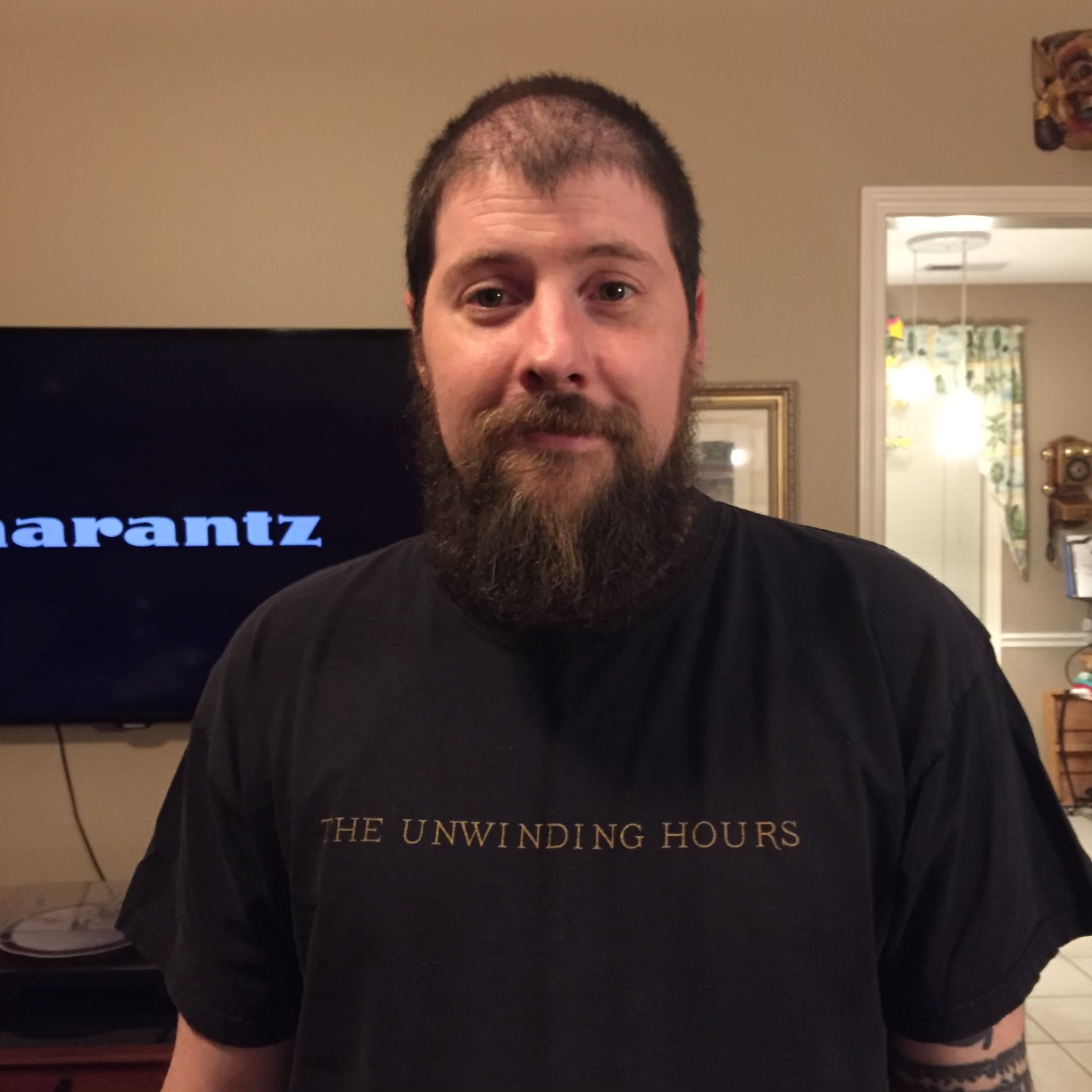
first time candidate
Bryan (a.k.a starbelly) has worked on the BEAM for roughly 5 years at companies utilizing Elixir, but sought to embed himself within the Erlang community fairly early on, and recently the LFE community as well. He has a strong sense of community, has a passion for helping people, and chances are he has reached out to try and help you in the past. In his spare time he contributes to Erlang/OTP, Elixir, hex_core, hexpm, rebar3, and is a co-maintainer of rebar3_hex. He also has been an active contributor within the Erlang Ecosystem Foundation shortly after its inception.
Why vote for him?
I bet the farm on the BEAM…
As an annual supporting member, an active contributor, and a member of several BEAM communities; I have a vested interest in helping further the foundation’s goals and by extension the ecosystem. I bet the farm on the BEAM and as such I make it a point to be highly involved wherever I can to assist however I can in furthering the success of the entire community and ecosystem.
For the past two years I have:
- Helped implement the elixir version of erlef.org, as well as continue to develop and maintain it.
- Setup internal and external infrastructure for the foundation and the community.
- General administrative and operative duties.
- Onboarding of working groups and contributors.
- Assisted in marketing the foundation.
Some things I wish to accomplish over the next 3 years:
- Help streamline the board’s meeting and voting process to speed up the turn-around time so that we may be more efficient in our efforts to support the ecosystem.
- Help devise and implement a bounty program for the community.
- Work closely with working groups and the community at large to convey and support the needs of both.
Mahesh Paolini-Subramanya
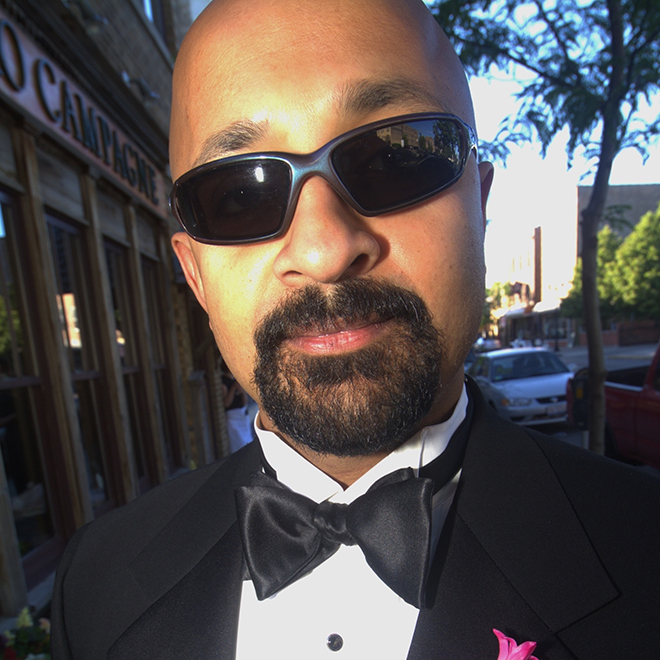
first time candidate
I’ve been all-in on the BEAM since the early 2000s, having built large geographically dispersed product-focused organizations across a variety of industries—always on the BEAM. Finance, Networking, Telecom, it doesn’t really matter—it was based on erlang then, and it’s based on elixir now. Most recently, I’ve been in the Finance sector growing BlockFi into a FinTech unicorn, and taking Factom from a market-cap of $10M to over $500M.
I have the—dubious—honor of being involved in creating the first web/e-commerce system, the first java based financial services platform, as well as the first erlang-based cloud PBX, three products I may never live down 🙄.
I’ve been a prolific public speaker over the years, speaking and hosting at conferences such as ClueCon, CodeMesh, Erlang Factory, ITEXPO, NoSQL Matters, OSCON, TechMesh, TopConf, and USENIX—usually on topic related to erlang 🤗.
I was previously the V.P. of R&D (and Managing Director/Poland) at Ubiquiti Networks, a global provider of networking hardware, and the CTO of Vocalocity (you might know of it as Vonage Business these days)—one of the leading providers of business phone systems. And yes, all BEAM, all the time. Yes, there was a Java thing in the mid-nineties, but I did say that that was something I may never live down…
I have a Bachelor’s Degree in Electrical Engineering from the Indian Institute of Technology, Kanpur, and a Masters in Electrical & Computer Engineering from the University of Notre Dame.
Why vote for him?
My company—BlockFi—is, as I mentioned, all-in on the BEAM. We have close to 200 elixir folks working on our platform, and I expect to double that this year. So yes, if I don’t care deeply about the present and the future of the erlang ecosystem, who does? Also, for what it’s worth, this isn’t some kind of recent thing—I’ve been involved in Erlang/Elixir forever (read the bio above, or checkout my LinkedIn profile), and have no plans on changing that!
Want someone who’s going to make damn sure that the BEAM universe thrives? You could do far far worse than to vote for me!
Amos King
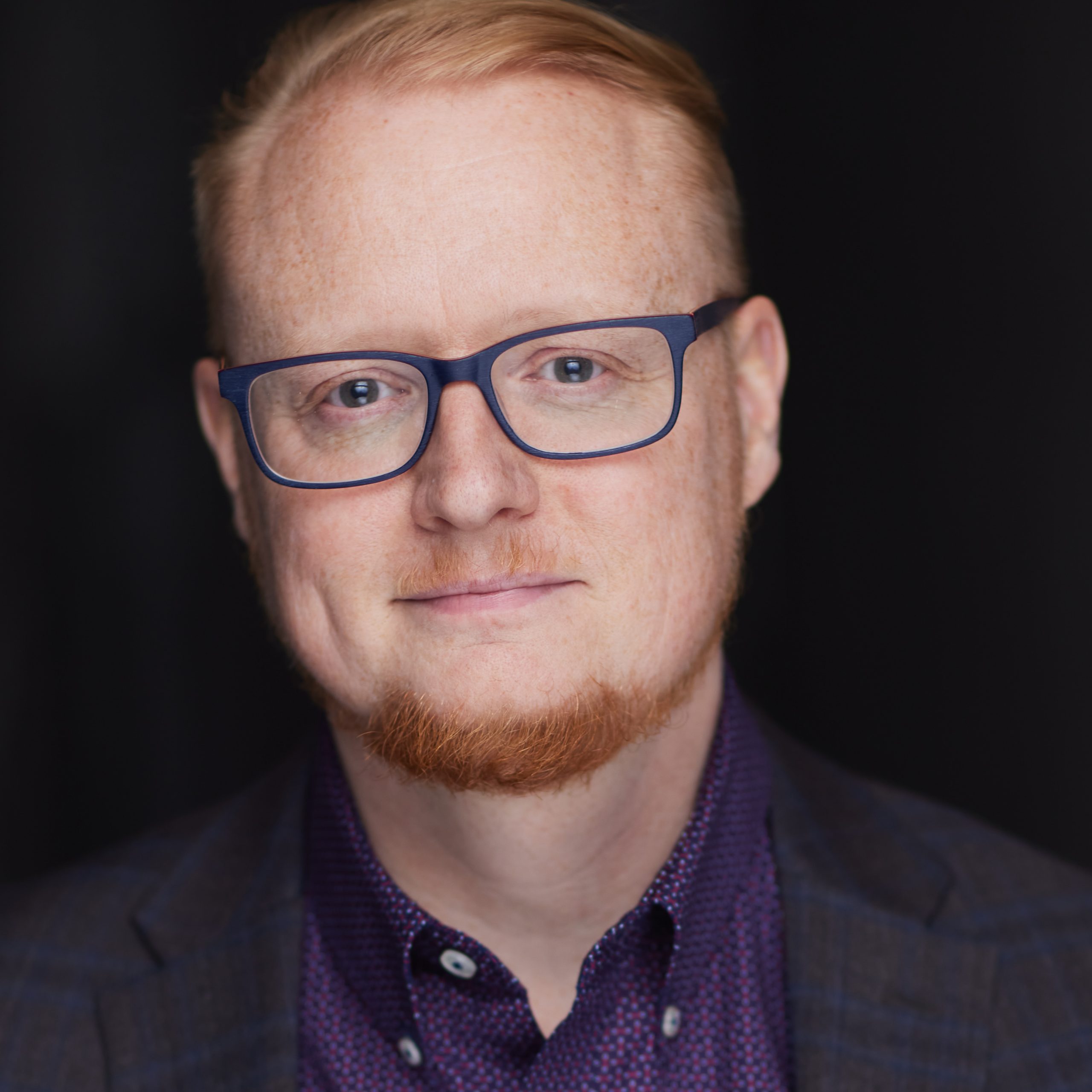
first time candidate
Amos King is a long-standing member of the Erlang and Elixir community. He has used Elixir, Phoenix and other programming languages in numerous industries with more than a decade of experience to wide acclaim.
Active in the coding community as a mentor and meet-up organizer, Amos is also a co-host of Elixir Outlaws and This Agile Life podcasts. He has reviewed several books for Pragmatic Bookshelf–including Real-Time Phoenix by Stephen Bussey–and has presented his work at multiple industry conferences, including ElixirConf, Lonestar Elixir, Code BEAM, and GigCity Elixir.
Amos fosters integrity, trust, and continual growth with his employees at Binary Noggin and his peers in the coding community through Noggin Day, a weekly celebration of learning and curiosity. When he’s not working, Amos enjoys traveling, fly-fishing and roasting coffee.
Why vote for him?
I’m passionate about contributing to the BEAM community and want to share my knowledge and resources to expand the reach and use of the BEAM languages. I enjoy collaborating and bringing others together to discuss all things Erlang and Elixir so we can improve our skills, generate ideas, and develop exceptional tools. Our community is full of great perspectives, and I hope to facilitate the training and adoption methods within the working groups to further BEAM’s capabilities.
Being a member of the EEF has been a great experience, and I would love the opportunity to give back as a board member to cultivate the ecosystem we’ve created.
Sophie DeBenedetto
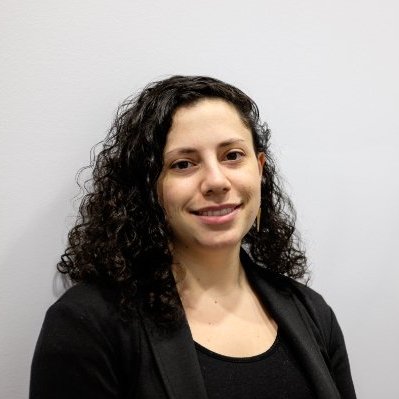
first time candidate
Sophie is a senior engineer at GitHub and the co-author of Programming Phoenix LiveView. She is also the co-host of the BeamRad.io podcast where she explores all things BEAM, a frequent blogger on the topic of Elixir development (among other things), and a contributor to Elixir School, a free, open-source Elixir curriculum. She’s one of the co-organizers of the annual EMPEX NYC conference, has participated on the program committees of several other Elixir and functional programming conferences around the world, and is a frequent speaker and trainer at such conferences.
Sophie is a “career-change” engineer who graduated from The Flatiron School bootcamp where she fell in love with programming. Since then, she’s written programming curriculum, taught web development, and been privileged enough to evangelize Elixir to several teams of engineers who went on to put brand new Elixir apps into production with impressive facility and speed.
Sophie is passionate about programming education and works hard, through mentoring and by providing resources via her site https://www.break-in.tech/, to support the next generation of people who want to change their lives through code.
Why vote for her?
In my past life as an engineering manager, I supported several teams to ramp up on Elixir and put greenfield Elixir apps into production with ease and speed. I’ve seen first-hand the impact that Elixir has on developer happiness and productivity and successfully used Elixir to solve big problems for businesses.
As the ecosystem has matured in recent years, and adoption has grown, I’ve continued to evangelize Elixir in my professional and personal life. As the author of Programming Phoenix LiveView, I firmly believe not only that Elixir is the right fit for more and more companies, but also that LiveView is the future of web development—in fact, in writing this book, I’m staking my name on it!
With Elixir and Phoenix positioned for increased adoption around the world, it’s more important than ever that we support the growth of this community from the ground up. I’m committed to promoting Elixir education and training and making these resources more accessible, and to making the community an even better place for beginners.
Miriam Pena
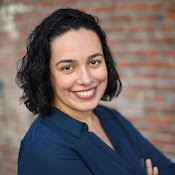
outgoing board member
Miriam is one of the founding members of the Erlang Ecosystem Foundation, where she sits on the board of directors. As a Board Member, she has been a strong advocate for diversity in tech visible when leading the now merged Adoption and Education workgroups. Under her leadership, the foundation has introduced over 300 students and underrepresented groups in tech to Erlang and Elixir by funding their attendance at conferences and tutorials. She was the driving force behind a stipend program to provide economic support for the development of key libraries needed by the community. She co-founded the Sponsorship, Fellowship and Marketing Work Groups, representing the Foundation at events, conferences and in social media. She was also involved in the inception of the website and marketing campaign which launched the foundation in San Francisco in 2019. She has also been responsible for finding some of the Foundation’s largest sponsors.
Miriam is passionate about solving real life problems with highly scalable, concurrent soft real-time systems with demands of high availability. She has consulted and been employed as an Erlang expert in companies all over the world, from the automakers in Detroit to social networks in Madrid, passing through telcos in Stockholm to control systems for renewable energy in Spain… All this brought her to San Francisco, where she is a Senior Staff Engineer at NextRoll Inc, in charge of their ad server infrastructure. Miriam obtained her Computer Science Engineering degree from A Coruña University (Spain). In 2018 she was selected as one of the Women in Tech To Watch by Women 2.0.
On the community front, Miriam is one of the organizers of the Erlang and Elixir Meetup in San Francisco, helping grow the group to over 2300 members. She has keynoted at CodeBEAM Stockholm, San Francisco and EMPEX LA and spoken at many other events. Her talks have ranged from the more technical BEAM Extreme, Don’t Do This At Home to D&I topics Unsung Heroes of the BEAM. For the last five years, she has been on the Program Committee organizing CodeBEAM conferences worldwide.
Why Vote For Her?
I have a strong belief in the potential of the Erlang Ecosystem Foundation and the developer community it represents. I’m a strong advocate for the Elixir community on the Board and will continue promoting the intermingling of Erlang and Elixir, as I believe that together, we are stronger. Elixir has a thriving and popular community that can revitalize the more established Erlang group; and in turn broaden its reach and impact.
In the last 3 years, by setting up the EEF and getting it off the ground, I have demonstrated that I can get things done by being versatile and wearing many hats –technical as well as people focused. Being scrappy, resourceful and creative when necessary.
A lot of work has been done opening the foundation to promising new projects. As a director, I want to drive these achievements forward through the following initiatives:
- Sponsorship hire: The EFF is gaining size and momentum so it can now get slowed down at times by solely relying on volunteer work. We recently hired a company to delegate our marketing initiatives and a developer for our infrastructure efforts. With your support I will continue advocating to hire another person to cover the administrative and sponsorship work. With the added efficiency in recruiting new sponsors and fidelizing them this position will pay for itself in a short time and allow the community to grow.
- Elixir interoperability: There is a growing number of Elixir libraries that I would love to use in my Erlang environment. However doing so requires a complex setup. I would like to create and support a project that tackles the challenge of bundling Elixir code in Erlang applications in a simple, transparent and efficient way.
- Diversity: I am adamant about increasing the diversity of our community as the best way to thrive and make it resilient. I will continue creating initiatives that will increase the number of people from underrepresented groups and non-traditional backgrounds. A clear avenue I just started to work on is expanding the reach of the BEAM community in LATAM through localized training and resources.
- Education: From the Board I will continue pushing our engagement with universities, meetups and other education groups/institutions to continue expanding our user base.
Peer Stritzinger
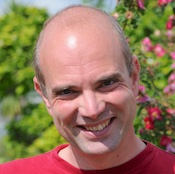
outgoing board member
Peer discovered Erlang in 2007 and has been relying on it ever since. Fascinated by all its emergent properties which are quite non-obvious from afar. Around it he found the best developer community one could wish for being part of.
He is Founder and Director of Peer Stritzinger GmbH which created GRiSP www.grisp.org, a platform to run Erlang on small embedded systems and focusses on building Automotive, Industrial IoT and Smart Cities applications and tries to use Erlang technology wherever useful. Participating in several EU funded research projects, he is trying to push the envelope for what can be done with Erlang and the other languages on the BEAM.
Peer’s previous experience ranges from low level device drivers to functional languages in industrialand automotive applications. He initially mastered in physics at the Technical University Munich. He has been working self-employed as a developer since 1987 and also consulted in applied cryptography and protocol design and implementation. He is since ever living and working in the idyllic countryside west of Munich, Bavaria.
Why vote for him?
Starting with several years in the Industrial Erlang User Group, the predecessor Organisation whose main goal was to create what is now the EEF, I’m happy to have been part of the work on making this all happen. As an active member on the board, I always look for ways to improve what we have reached and to introduce new ways of enhancing and growing our community and will continue to do so.
My main focus so far was helping to reach out to sponsors and bootstrap useful ways to fund projects, which improve and grow our whole ecosystem. As part of the education working group, my main focus is outreach to universities teaching and researching with Erlang based technologies. I’m mentoring students, picking up projects as bachelor and master thesis. Just today a new idea was spawned in this working group to organise our own “summer of code” like project. I will work on the board and in the working group to make this happen. In the infrastructure working group I was mainly responsible for the membership database and try to steer the development of the tools we need to organise ourselves. Listening in on all the working groups, the one closest to my heart is of course the embedded working group. We currently are managing 3 funded projects most of which benefit the whole community like the floating point optimisation which speeds up JSON and SVG creation and of course also work on AsmJIT for ARM64 and ARM32.
Should I be elected I will push forward to improve and expand our community by furthering these and similar projects. I will always have a open ear for everyone in the community and help remove all the obstacles which might hinder us to thrive.
I strongly believe that the technologies built on top of Erlang and the BEAM have by far not reached their full potential, let’s work together making this happen.
Benoît Chesneau
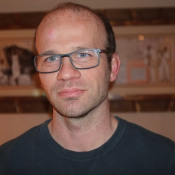
outgoing board member
Benoît is a French entrepreneur, owner of Enki Multimedia, a French limited Company now 14 years old, providing consulting & development in decentralised data and (tele)communication platforms. Most of the work provided by Enki Multimedia is done in Erlang, but also other languages based on the BEAM or not. Benoît is best known for his work in open-source with many libraries and tools successfully used in Erlang and Elixir applications. Among them Hackney, but others as well.
Benoît has been committed to the Erlang community for a long time. It all started by joining the CouchDB project, one of the oldest databases written in Erlang, around 2008-2009. You may have met him in a number of conferences and meetups around the world (San Francisco, Stockholm, Milan, Munich, Moscow, Tokyo, Paris, …). He also organises the French Erlang Paris meetup and founded the new Erlang Connection organization to maintain it.
Before joining the board and helping to found and grow the Erlang Ecosystem Foundation, Benoit was an active member of the Erlang Industrial User Group (IEUG), a group of companies interested in developing the Erlang Ecosystem. The IEUG is the ancestor of the Erlang Ecosystem Foundation. Enki Multimedia, his company, is a founding sponsor of the Erlang Foundation. Benoît is the chair of the infrastructure Working Group, which provides technical support and services to the BEAM community and other Working Groups.
Why vote for him?
My focus as a board member member is to ensure that we as a community have all the tools and the funding needed to expand and make our ecosystem better. I worked during the last two year on different projects to make the collaboration inside the foundation more transparent, worked on the process allowing the Working Groups to report their work to the board but also the community, and helped to nurture different projects coming with the Stipends or not. I also co-founded the Marketing, Infrastructure & Fellowship working groups.
While we are on a good track, I am considering this is just the beginning. If you vote for me I will work with other members of the board in making the foundation a better tool for the community. I am also a strong believer in openness. There should be no club inside the foundation, everyone should be able to participate and know what is happening. Being open will make us a very inclusive community where everyone is welcome. As a board member, I will work with the different Working Groups to improve the communication inside the ecosystem and expand its presence and visibility in all markets and Education systems. Erlang and other languages based on its virtual machine are ready for the future of technology, all together let’s make sure people know about it.